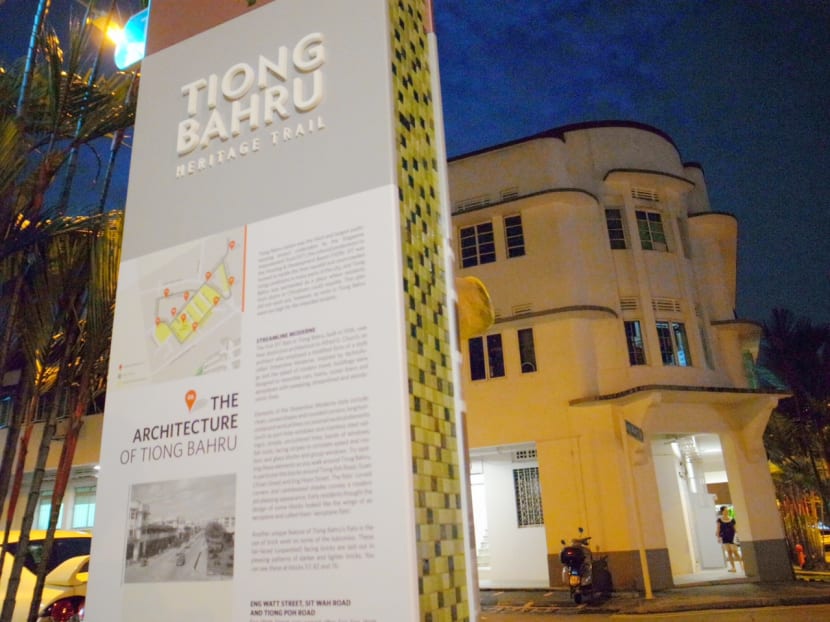Airbnb in talks with URA for clearer rules on short-term leasing
SINGAPORE — Airbnb is in talks with the Urban Redevelopment Authority (URA) to establish clearer guidelines on short-term leasing as the home-sharing site seeks to help homeowners monetise their properties.

An established framework on short stays can help Singapore tap into a new segment of independent travellers, such as those interested in exploring Tiong Bahru. TODAY file photo
SINGAPORE — Airbnb is in talks with the Urban Redevelopment Authority (URA) to establish clearer guidelines on short-term leasing as the home-sharing site seeks to help homeowners monetise their properties.
The guidelines could include allowing homeowners to lease only their primary homes or limiting the number of days for short-term rentals, as practised in countries such as France and the Netherlands, Mr Chai Jia Jih, Airbnb’s managing director for South-east Asia and India, told TODAY in an interview.
“Right now, there is no clear framework that sort of says, ‘Here are the boundaries for renting out your home.’ … What we are trying to get to is a set of rules that makes sense, that takes into account the needs of the people and the regulator and what they are concerned about while getting all the benefits of home-sharing,” said Mr Chai.
“In every city we have worked with in this manner, we have come to a set of rules that make sense for that city. Like France: The reason why they said only primary homes was that they were worried about people taking up inventory. So they said: ‘Okay, you can do it, but you can’t just buy a property and rent it out. You can rent out your primary home’.”
Current guidelines in Singapore state that private residences are meant for longer-term stays of six months or more, while Housing and Development Board (HDB) flat owners are not allowed to sublet their units or rooms to tourists for short-term stays.
As the home-sharing concept gains traction here, concerns over safety, privacy and noise have emerged. In January, the URA launched a public consultation to gather feedback on whether private homes should be allowed to be used for shorter-term stays. While the consultation ended in February, a URA spokesperson told TODAY that the agency is still reviewing the matter and will announce details when they are ready.
Mr Chai said Airbnb became involved in the review process “from the beginning”. It was one of the industry players URA had sought feedback from, such as information on traveller profiles and the role of hosts in the home-sharing economy.
Besides helping Airbnb register more bookings here, a clearer framework on short-term rentals can help Singapore tap into a new segment of independent travellers, such as those interested in exploring Little India, Arab Street or Tiong Bahru, rather than the Orchard Road tourists, he added.
The move comes amid concerns of a slowing tourism industry, where arrivals dipped 0.6 per cent in the first eight months of this year, compared with the corresponding period last year. The standard average occupancy rate at hotels also slipped 0.6 per cent during the same period.
“Full credit to the tourism board for promoting Singapore as a destination, but one of the challenges it faces sometimes is the pricing to come here. So, I think that is one of the ways we can get more travellers coming in,” Mr Chai said.
“What’s interesting about Airbnb travellers ... is that they pay less on accommodation but they eventually spend more overall because they stay longer. They spend more on stuff outside accommodation and they tend to spend in mom-and-pop shops.”
Out of the 300-or-so Singapore listings on Airbnb, TODAY found that a one-bedroom loft about five minutes’ walk from Tiong Bahru MRT would set travellers back S$135 a night, while a deluxe room at a hotel nine minutes away costs about S$160 a night.
While Singapore is currently Airbnb’s second-biggest source of outbound travellers in Asia, inbound bookings are “nowhere close to” Japan’s — the home-sharing site’s fastest growing inbound market in Asia, said Mr Chai. Airbnb was unable to provide statistics on the bookings it received.
Mr Chai said Japan has taken to the concept of home-sharing as it allows its ageing population to monetise housing assets. Home-sharing also addresses accommodation space constraints, with mega events such as the 2020 Olympics coming up.
In Singapore, with property measures and loan curbs slowing down housing transactions and causing vacancy rates to climb, such a concept can enable homeowners to earn additional income, too.
“Singapore is more averse to doing things without clear rules. Once there are clear rules in place, I think that will help,” Mr Chai said.






